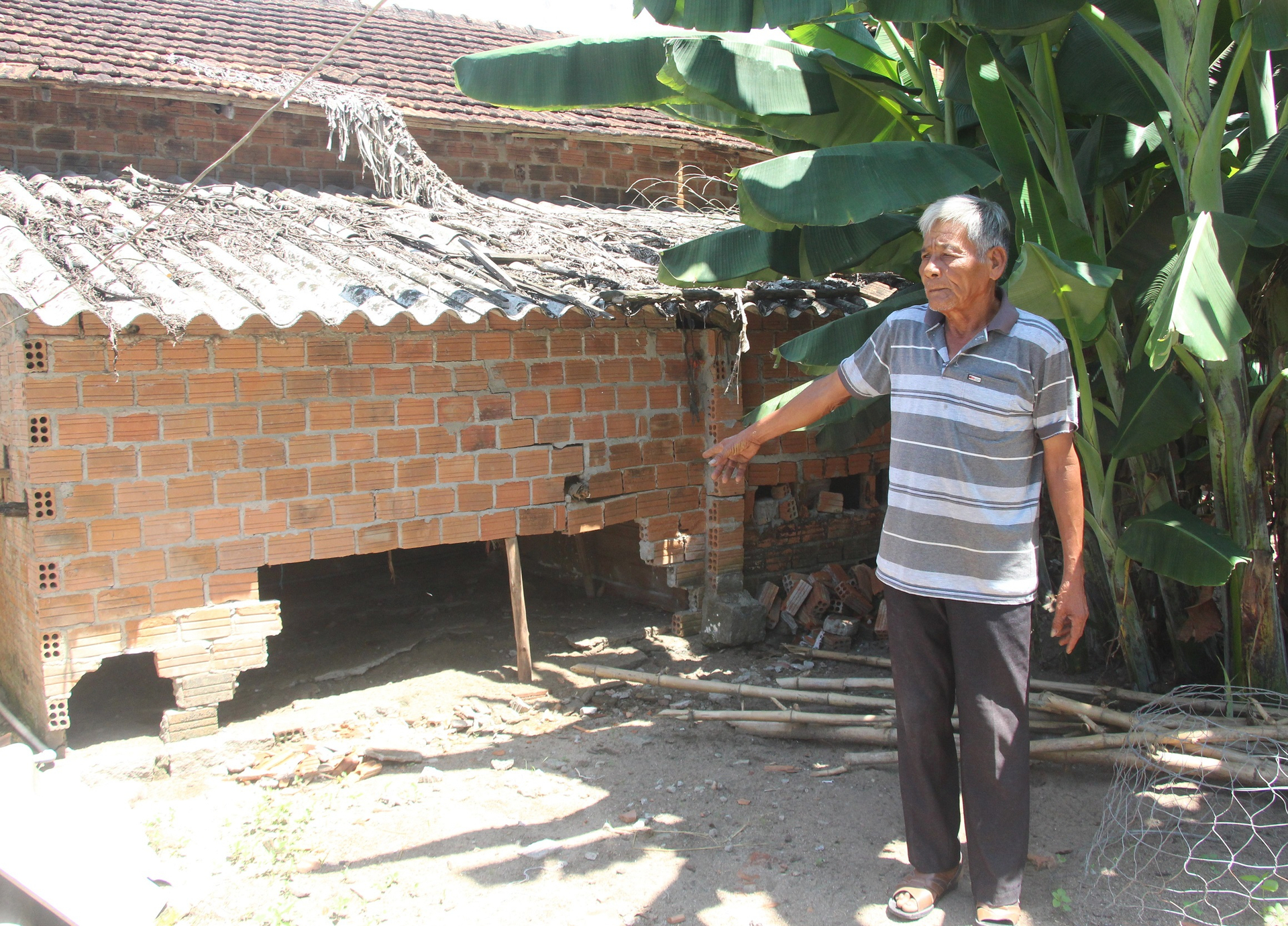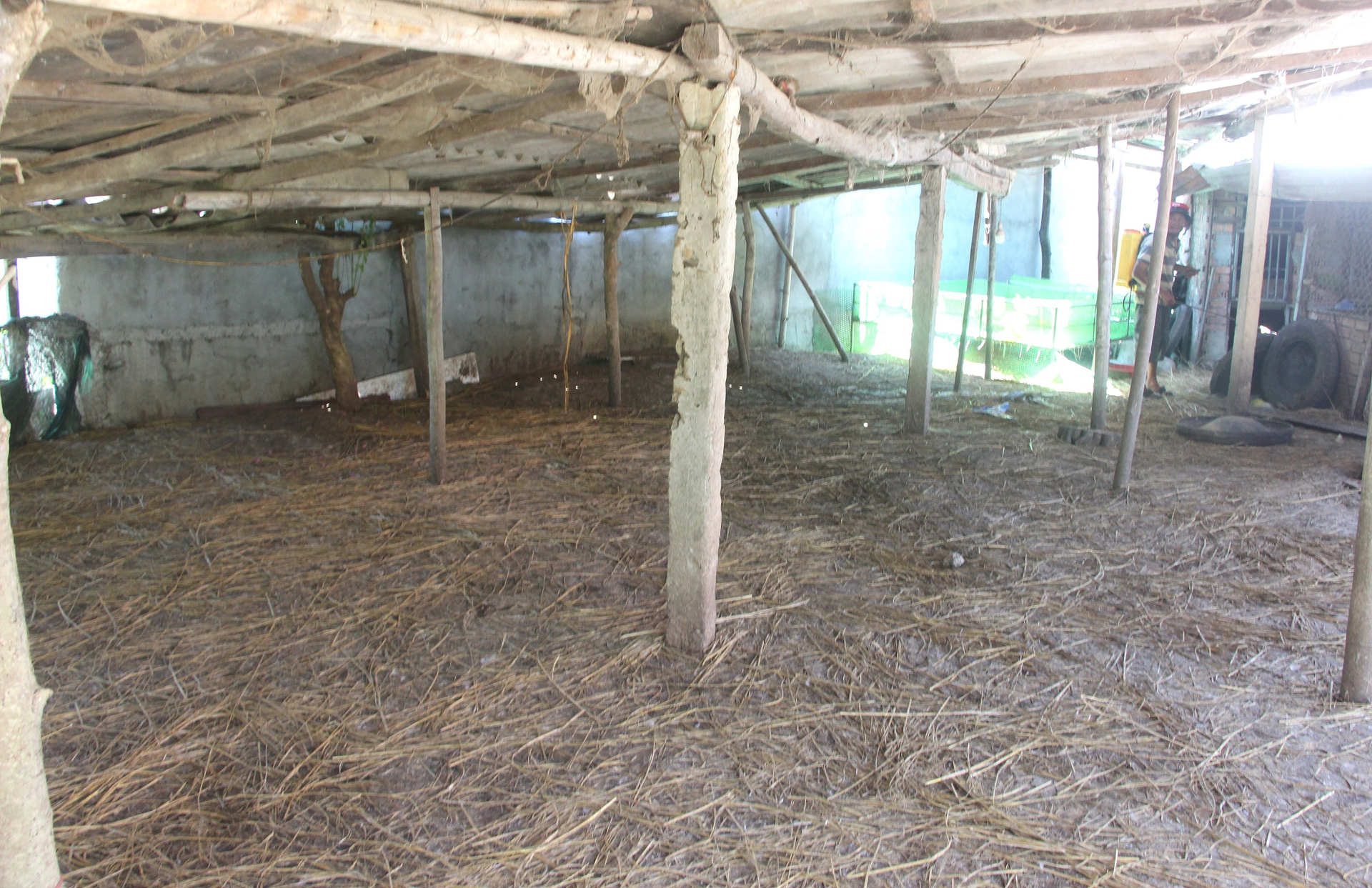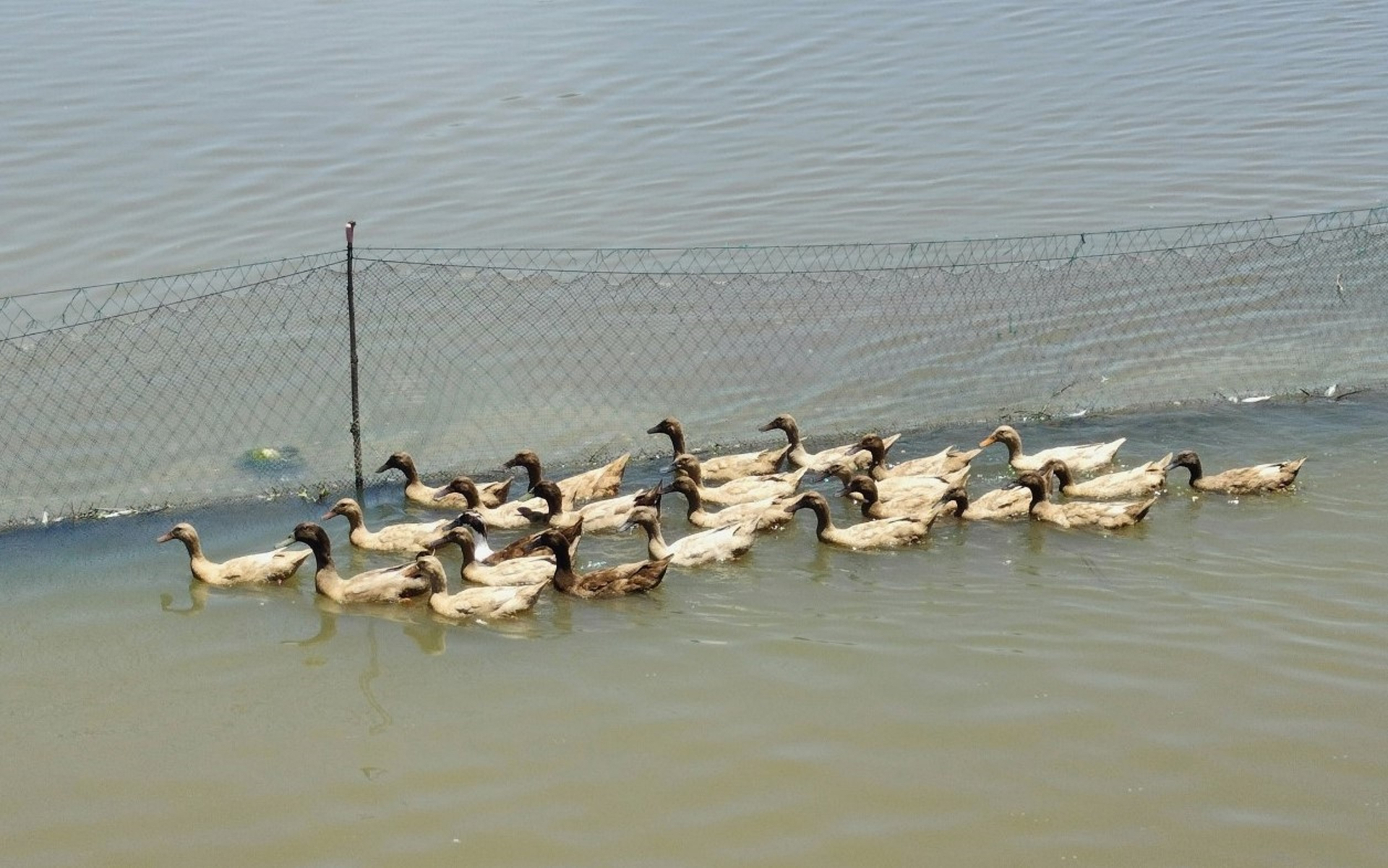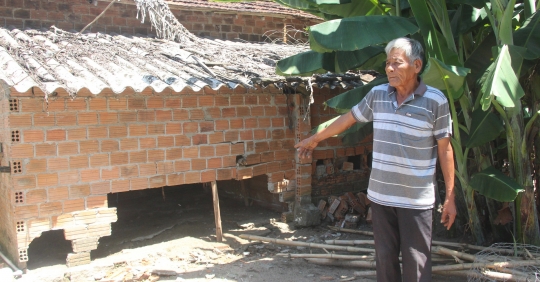
People in Quang Ngai lost tens to hundreds of millions of dongs because their poultry flocks were infected with A/H5N1 flu. Picture: LK
Recently, many breeding households in Tu Nghia (Quang Ngai) district are extremely concerned about the situation that influenza A H5N1 is coming back and killing thousands of poultry. Many flocks of chickens and ducks that have not yet been sold have to be destroyed, resulting in losses of tens to hundreds of millions of dong.
Three months ago, Ms. Nguyen Thi Kim Van (resident in La Ha Village 3, Nghia Thuong Township, Tu Nghia District) spent VND 30 million to buy 1,100 ducklings to raise. Shortly before the sale date, more than 200 ducks from her family suddenly showed signs of cloudy eyes, convulsions and white stools and suddenly died en masse.
After reporting to authorities and collecting samples for testing, the results showed that Ms. Van’s family’s ducks were positive for the H5N1 influenza A virus. All remaining ducks were also destroyed to prevent the disease from spreading widely.

Household pens are empty due to the disease, resulting in death and destruction of poultry. Picture: LK
“Usually, if they don’t get sick, I can sell these ducks for VND130,000-140,000/head, making almost VND100 million. However, now that I lost everything, my family don’t know how to deal with it because we still owe 20 million Dong to buy groceries. I hope that my superiors will pay attention and provide some support so that my family can continue to earn an income to provide for the family,” said Ms. Van.
Likewise, Mr. Nguyen Phuong’s family (Phu Nhuan Village, Nghia Thuan Township, Tu Nghia District) was at a standstill due to the loss of 500 ducks that had just been bred for more than two months. Mr. Phuong said that when he first bought and raised the ducks, he actively cleaned the pen and vaccinated the whole ducks to ensure disease security.
However, just before being sold to traders, all 500 ducks showed signs of tremors and white droppings, and then died in large numbers. Immediately afterwards, Mr. Phuong immediately informed the Nghia Thuan Municipality veterinarian to come for an examination and take samples to send to the authorities. He found that the ducks in the family were infected with influenza A H5N1.
“In order to raise this flock of ducks, I bought 100 bags of flour at a price of about VND 45 million and added additional money to buy seeds. The damage is not small.” I hope that the Nghia Thuan Municipality Veterinary Bureau and the Tu Nghia District Ministry of Agriculture and Rural Development will organize training, provide technical advice and disease prevention for poultry and livestock in the future to help people to improve their postural skills.” . Nguyen Phuong announced.

The current weather pattern is hot with rain and thunderstorms, providing favorable conditions for the emergence and spread of influenza A/H5N1 pathogens. Picture: LK
According to the Tu Nghia District People’s Committee, given the complicated situation of H5N1 avian flu in the region, that district has ordered municipalities and related units to strengthen surveillance to detect outbreaks early and coordinate with the district agriculture service center to ensure proper Treatment to ensure the outbreak according to the regulations.
Tran Thien Thanh, vice chairman of the Tu Nghia District People’s Committee, said the district has also requested functional forces to promptly prevent the sale or slaughter of diseased poultry, increasing the risk of the disease spreading. Accelerating the first phase of vaccination against avian flu in 2023 and organizing regular age-based vaccinations from the county-assigned vaccine source.
“We have tasked the District Agricultural Service Center to immediately distribute avian flu vaccines and disinfectants to communities and cities to organize vaccinations and carry out cleaning and disinfection work. Poultry farming environment.” “At the same time, actively monitor and sample poultry showing signs of disease and send them for examination to determine the cause,” Thanh said.
Mr. Do Van Chung, director of the Subdivision of Animal Husbandry and Veterinary Medicine in Quang Ngai Province, said the hot weather with thunderstorms is now creating favorable conditions for the emergence and spread of the A H5N1 influenza virus. In addition, most farmers have a subjective attitude, have not properly vaccinated poultry and given enough doses, which leads to a decrease in resistance, so the risk of disease occurrence in the coming period is very high.
“Farmer awareness of vaccination and compliance with disease prevention and control measures is very important. To prevent and control H5N1 A flu, every livestock facility must use biologically safe breeding practices, thoroughly clean stalls, and trace the origin of seeds before storing them.
At the same time vitamin supplementation, full vaccination against diseases in poultry flocks. In addition, livestock must be closely monitored. If unusual symptoms appear, it is necessary to report immediately to veterinary officials or local authorities for a timely solution. “It is absolutely forbidden to slaughter, transport or trade diseased poultry to avoid large-scale spread,” Chung said.

